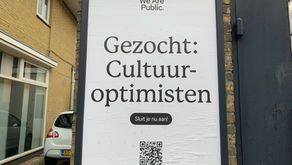A Song of Departure
- Judith Weir
- Mar 27, 2018
- 2 min read

An unusual task came my way with the announcement a year or so ago that the Schubert Ensemble would be retiring after their 35th season. My colleague and friend of even more than 35 years, William Howard (pictured) invited me to to write a short piece for the group’s final London concert at the Wigmore Hall. Alongside their wide ranging diet of classic piano and strings, the Schuberts have always championed living composers, with about 60 major commissions under their belts (plus many hundreds, perhaps thousands, of student pieces written for their college and university residencies over the years.)
As a result, I felt I was representing just about every composing friend I know in taking up this invitation. Luckily, it soon occurred to me that Schubert himself had already written the exact composition that was needed; his song Abschied (from Schwanengesang) where the narrator bids a cheerful, or maybe defiant farewell to town, trees, gardens, maidens before trotting off into the future. I say ‘trotting’ because a horse is mentioned in the opening of the poem – ‘my horse is already cheerfully pawing the ground’ – and fast, energetic motion became the basis of my own new composition, A Song of Departure.
Energy and forward motion seemed important to celebrate during this important Wigmore evening. Most unusually for a musical group bowing out, all the members are in good health and still talking to each other. Problems with one or other of these important factors often bring about a chamber music retirement. But everything the Schubert Ensemble do is creative, and even their decision to leave concert life (as a group, not of course as individuals) has been approached as a lively project, with a year of farewells to loyal audiences around the world, plus performance videos being recorded and a permanent website designed. However, at the end of a wonderful London farewell, my equanimity temporarily deserted me, realising that I won’t in future be able to see this particularly dear group of friends onstage together.






